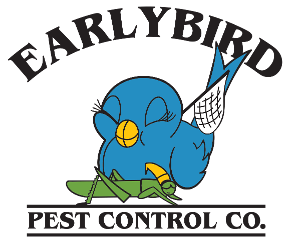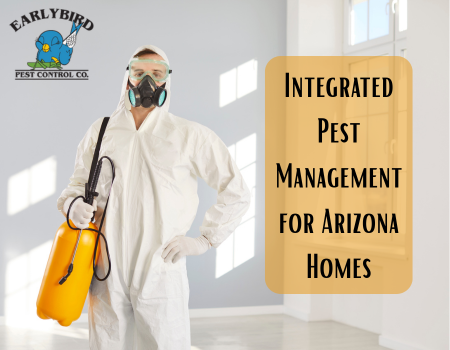When you think of pest control in Arizona, you might picture chemical sprays, traps, and exterminators in full gear. But there’s a smarter, safer, and more sustainable way to protect your home from unwanted guests: Integrated Pest Management (IPM).
Integrated Pest Management referred to as IPM isn’t just a buzzword—it’s a practical approach that combines science, strategy, and prevention to keep pests away while reducing the need for harsh chemicals. For homeowners who care about their health, their pets, and the environment, IPM offers an effective balance between safety and control.
What Is Integrated Pest Management?
Integrated Pest Management (IPM) is a pest control strategy that focuses on long-term prevention rather than just short-term elimination. Instead of relying solely on chemical pesticides, it uses a mix of techniques such as habitat modification, biological control, and mechanical barriers to manage pest populations.
The idea is simple: understand why pests are showing up, fix the conditions that attract them, and only use chemicals when absolutely necessary, and even then, in the safest way possible.
In Arizona, where the climate encourages year-round pest activity, from scorpions and termites to ants and cockroaches, IPM can be especially beneficial. It helps homeowners maintain pest control without overexposing their families or properties to toxic substances.
The Core Principles of IPM
- Inspection and Monitoring
The first step in IPM is to regularly inspect your property and identify what pests are present. Are you seeing ants near the kitchen sink? Or scorpions near outdoor water sources? Monitoring helps you catch issues early before they become infestations. - Identification
Correctly identifying pests is crucial. Different pests require different strategies. For example, a harmless ground beetle doesn’t need the same response as a termite colony. - Prevention
Prevention is the heart of IPM. This includes sealing cracks and entry points, eliminating food and water sources, and maintaining a clean, clutter-free environment. Simple steps—like fixing leaky faucets or storing food in airtight containers—can drastically reduce pest attraction. - Control Methods
When prevention isn’t enough, IPM uses a tiered approach to control:
- Physical controls: such as traps, barriers, and vacuuming pests directly.
- Biological controls: using natural predators (like beneficial nematodes or ladybugs) to control pest populations.
- Chemical controls: using targeted, low-toxicity products only when necessary.
Why IPM Is Ideal for Arizona Homes
Arizona’s warm, dry climate makes it perfect for pests that thrive in heat and seek moisture—such as scorpions, roaches, spiders, and termites. Because these pests are persistent, many homeowners rely heavily on chemical treatments. But overuse of pesticides can cause environmental damage, harm beneficial insects, and even reduce a pesticide’s effectiveness over time.
Integrated Pest Management helps reduce that dependency by addressing the root causes of infestations. For instance:
- Sealing cracks in stucco or foundation walls keeps scorpions and spiders from entering.
- Fixing irrigation leaks and managing landscaping can deter ants and termites.
- Proper waste management discourages roaches and rodents.
By focusing on these preventative measures, homeowners can enjoy fewer infestations and rely less on toxic chemicals.
Natural and Low-Toxicity Options
Many IPM programs include natural pest control methods that fit Arizona’s ecosystem. For example:
- Diatomaceous earth can be used to deter crawling insects like ants and roaches.
- Essential oils such as peppermint or citrus can help repel spiders and ants.
- Beneficial insects like praying mantises or lacewings help keep garden pests in check.
While these methods might not eliminate pests overnight, they create a safer, more balanced environment that minimizes long-term problems.
Long-Term Benefits of IPM
- Healthier homes: Reduced exposure to chemicals means safer air and surfaces for your family and pets.
- Sustainability: IPM supports local ecosystems by avoiding unnecessary harm to pollinators and other beneficial organisms.
- Cost-effectiveness: Preventing infestations is cheaper than treating large outbreaks.
- Peace of mind: You gain control without the constant worry of chemical overuse.
Final Thoughts
Integrated Pest Management isn’t about giving up control—it’s about gaining smarter control. For Arizona homeowners who want to protect their property, health, and environment, IPM offers a comprehensive approach that works with nature instead of against it.
When you combine regular inspections, preventative measures, and minimal chemical use, you can maintain a pest-free home that’s as safe as it is comfortable, all year long


Recent Comments